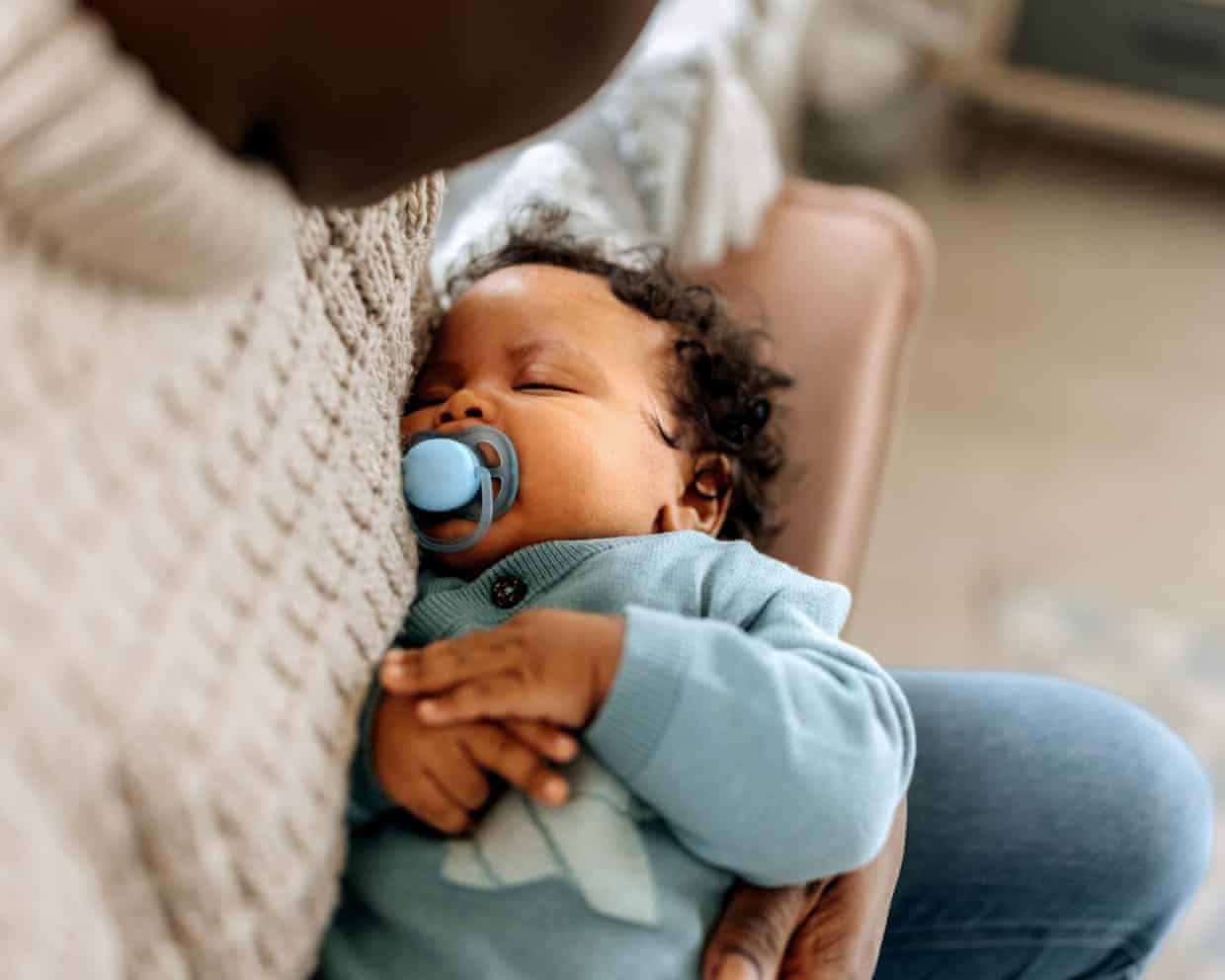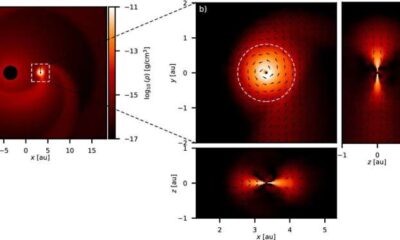World
Major Brands Face Scrutiny Over BPA in Baby Dummies

A recent investigation has uncovered the presence of bisphenol A (BPA), a chemical linked to serious health issues, in baby dummies manufactured by three prominent European brands: Philips, Curaprox, and Sophie la Girafe. Laboratory tests conducted by dTest, a Czech consumer organization, revealed BPA levels that exceed European Union (EU) safety regulations, raising concerns for parents and health advocates alike.
The testing involved purchasing 19 baby dummies from retail outlets in the Czech Republic, Slovenia, and Hungary, as well as two from the online marketplace Temu. Each dummy was submerged in an artificial saliva solution at 37°C for 30 minutes to replicate conditions in an infant’s mouth. The extracts were then analyzed for bisphenol content.
Out of the products tested, four contained detectable levels of BPA. The highest concentration was found in the Curaprox Baby Grow with Love soother, which registered at 19 micrograms per kilogram (μg/kg), exceeding the EU limit of 10 μg/kg for BPA migration from baby dummies. The second highest concentration was in the Sophie la Girafe pacifier, which had a BPA level of 3 μg/kg. Philips’ Avent Ultra Air soother and another dummy from Foshan City Saidah both showed BPA levels of 2 μg/kg.
Despite these findings, Philips stated that subsequent testing confirmed its products to be BPA-free. A spokesperson emphasized their commitment to safety, stating, “We want to reassure our soother ranges are BPA-free throughout the entire manufacturing process, and we regularly conduct randomized tests to meet regulatory requirements.” Similarly, Sophie la Girafe defended its products, claiming that the BPA levels detected were insignificant and well below regulatory limits.
The response from Curaden, the manufacturer of Curaprox, was more proactive. The company expressed surprise at the findings and announced the removal of affected products from the market, along with a refund offer to customers. This decision reflects a growing concern over the potential health risks associated with BPA exposure, particularly in vulnerable populations such as infants.
Chloe Topping, a campaigner with Chem Trust, highlighted the extensive health effects linked to BPA, including breast and prostate cancer, obesity, and developmental issues in children. She noted that children are particularly susceptible to the impacts of endocrine-disrupting chemicals, which can have adverse effects even at low concentrations. “Exposure to bisphenol A at an early age or in the womb is linked to reduced sperm counts and early onset puberty,” Topping remarked.
The current EU regulations concerning BPA in dummies appear ambiguous. While the EN 1400 standard sets a migration limit of 10 μg/l, the European Toy Safety Directive allows for up to 40 μg/l. Since 2011, the use of BPA in baby bottles has been banned, with regulations expanding in 2018 to include food containers for children under three years old. Yet, the lack of stringent regulation for dummies has drawn criticism.
Karolína Brabcová of the Czech campaign group Arnika pointed out the inconsistency in regulations, stating, “It is illogical that bisphenols are banned in baby bottles but not in pacifiers, which babies use more intensively.” The call for more rigorous safety standards in baby products is becoming increasingly urgent as consumers demand transparency and safety for their children.
As the investigation continues, the retailers involved face scrutiny over product safety and the implications of these findings on consumer trust. Many parents are likely to reconsider their choices as they navigate the complexities of product safety in a market where such vulnerabilities exist.
In a digital age where information spreads rapidly, the revelations from dTest serve as a crucial reminder of the importance of vigilant consumer advocacy and regulatory oversight, particularly in products designed for the most vulnerable members of society.
-

 Science2 months ago
Science2 months agoUniversity of Hawaiʻi at Mānoa Joins $25.6M AI Initiative for Disaster Monitoring
-

 Health2 months ago
Health2 months agoNew Gel Offers Hope for Regrowing Tooth Enamel in Dentistry
-

 Science1 month ago
Science1 month agoALMA Discovers Companion Orbiting Red Giant Star π 1 Gruis
-

 Lifestyle1 month ago
Lifestyle1 month agoPark Jung Min’s Endearing Moment with Hwasa Steals Show at Awards
-

 Science2 months ago
Science2 months agoIROS 2025 to Showcase Cutting-Edge Robotics Innovations in China
-

 Lifestyle2 months ago
Lifestyle2 months agoStone Island’s Logo Worn by Extremists Sparks Brand Dilemma
-

 Lifestyle2 months ago
Lifestyle2 months agoSampson County Celebrates Susie Faison’s 100th Birthday Milestone
-

 Lifestyle2 months ago
Lifestyle2 months agoMary Morgan Jackson Crowned Little Miss National Peanut Festival 2025
-

 Health2 months ago
Health2 months agoStartup Liberate Bio Secures $31 Million for Next-Gen Therapies
-

 Health2 months ago
Health2 months agoTop Hyaluronic Acid Serums for Radiant Skin in 2025
-

 Science2 months ago
Science2 months agoArizona State University Transforms Programming Education Approach
-

 Politics2 months ago
Politics2 months agoJudge Considers Dismissal of Chelsea Housing Case Citing AI Flaws








